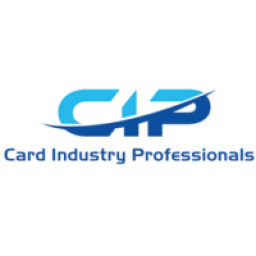In an ever-evolving professional landscape, self-directed learning emerges as the key to unlocking unparalleled career growth and innovation. Explore how this approach can revolutionise your skill set and professional trajectory.
The only constant is change and the drive for continuous professional development cannot be overstated. With industries evolving at an unprecedented pace, the onus is on professionals to keep their skills sharp and their knowledge current.
Yet, amidst the whirlwind of daily responsibilities, how can ambitious individuals foster growth without compromising their existing commitments? The answer lies in the potent, yet often underutilised strategy of self-directed learning.
Self-directed learning represents a transformative approach to personal and professional development. It's about taking control of your learning journey, identifying your educational needs, and seeking the resources to meet those needs on your terms. This approach not only facilitates a deeper understanding of new skills and concepts but also instils a sense of ownership and motivation that traditional learning environments might not offer.
With a focus on online courses, industry certifications, and cross-training, self-directed learning offers a flexible, impactful path to achieving professional excellence and adaptability.
The Power of Online Courses
The digital age has ushered accessibility and convenience into the learning environment, with online courses standing at the forefront of this educational revolution. These courses offer unprecedented flexibility, allowing learners to engage with content at their own pace, on their schedule, and from anywhere in the world.
Whether you're looking to enhance your current skill set, pivot to a new field, or simply explore an area of interest, online courses provide a wealth of knowledge at your fingertips.
Self-Directed Learning and Blended Learning
Indeed,
a pivotal study explores the dynamics of self-directed learning within blended learning environments, highlighting how personal attitudes towards technology and self-directed learning strategies significantly impact students' engagement and effectiveness in learning.
It underscores the crucial role of institutional support, technology readiness, and the proactive adoption of self-directed learning methods in enhancing the overall learning experience. This research indicates that embracing self-directed learning not only fosters personal growth but also leverages technology to amplify learning outcomes.
Online Availability and Selecting The Right Course for You
Platforms such as
Coursera, Udemy, and
LinkedIn Learning have become invaluable resources for industry professionals. They host a vast array of courses covering a myriad of topics, from data science and project management to
creative writing and personal wellness. These platforms cater to learners of all levels, offering both introductory and advanced courses, thus ensuring that you can find a program that matches your current skill level and career aspirations.
Selecting the right courses, however, requires a strategic approach. Start by defining your professional goals and identifying the skills needed to achieve them. Consider the credibility of the course providers and the qualifications of the instructors. Pay attention to course reviews and feedback from other learners to gauge the quality and relevance of the content.
Lastly, ensure that the course offers practical, actionable insights that you can apply in your professional context. By doing so, you can maximise the impact of your learning efforts and take significant strides towards your career objectives.
Gaining an Edge with Industry Certifications
In today’s competitive job market, possessing a tangible demonstration of your expertise and commitment can significantly elevate your professional standing. Industry certifications serve this exact purpose. They act as benchmarks of excellence, signalling to employers and peers alike that you possess a comprehensive understanding and practical proficiency in your field of expertise.
Leaders Advocate Self-Directed Learning
A recent
NovoEd article celebrates the shift towards self-directed learning as a cultural movement fueled by curiosity and the desire for personal growth. It notes the ever-changing
job market and technological advancements demand a new learning approach.
Self-directed learning empowers individuals to take initiative, defining their learning journey beyond traditional schooling, thus catering to a wide array of interests from coding to carpentry. Indeed, in the post celebrated psychologist
Carol Dweck emphasises the role of technology in offering limitless learning possibilities, allowing individuals to explore areas unaddressed by standard curricula.
Certifications to Level Up Your Career
Certifications are revered across various industries for their ability to validate an individual's skills and knowledge. For instance, in the technology sector, certifications like
CompTIA Security+,
Cisco's CCNA, or
AWS Certified Solutions Architect stand as testimonies to one’s technical capabilities. In business, certifications such as Project Management Professional (PMP) or Certified ScrumMaster (CSM) highlight one’s leadership and management acumen. Similarly, creative fields offer certifications like Adobe Certified Expert (ACE), which showcases one's mastery of Adobe products.
The path to obtaining these certifications typically involves a combination of self-study and practical experience. Many professionals leverage online resources, textbooks, and dedicated study groups to prepare for certification exams. A proactive approach involves aligning your study plan with the specific objectives of the certification exam, taking practice tests to gauge your readiness, and engaging with communities of other professionals pursuing the same goals. This preparation not only aids in passing the certification exams but also deepens your understanding and application of the subject matter, further enhancing your professional capacity.
Selecting The Right Learning Platform for You
When it comes to self-directed learning, finding the right online platforms can really help individuals who are looking to learn new things on their own. Reviews from places like
Zapier and
LearnWorlds point out some of the best options available.
Platforms such as
Udemy and
Skillshare are great because they offer a wide range of courses. Udemy is perfect for those who want to dive into almost any topic they can think of, while Skillshare is ideal for creative folks looking to explore areas like design or photography through interactive projects.
For learners wanting something more structured,
Teachable and
Podia are solid choices. Teachable offers detailed courses across various subjects, allowing learners to deepen their knowledge. Podia stands out by offering not just courses but also memberships and digital products, giving learners more ways to engage with the material.
LearnWorlds is highlighted for providing an all-in-one platform, combining course creation, analytics, and eCommerce features, making it suitable for those who want a comprehensive learning experience.
Each of these platforms serves different needs, whether you're looking to pick up a new hobby, advance your professional skills, or even just learn something new for fun. The key is to choose one based on what you're looking to achieve and how you like to learn.
Cross-Training: Expanding Your Skill Set
Cross-training, in a professional context, refers to the practice of learning skills and functions that are outside your primary area of expertise. This strategic expansion of capabilities is not just about acquiring new skills; it's about fostering versatility, adaptability, and resilience within the workforce.
The benefits of cross-training are impressive. For the individual, it opens up new opportunities for career development, reduces the monotony of performing the same tasks, and increases job satisfaction by broadening one’s competence and confidence. For organisations, it builds a more flexible and versatile team capable of handling a wider range of tasks and filling in gaps as needed, thereby enhancing overall productivity and innovation.
Successful cross-training initiatives often come from industries that value versatility and innovation. For example, tech companies frequently encourage engineers to learn about project management or sales to better understand the business aspects of their projects. Similarly, healthcare providers may train administrative staff in basic patient care procedures to improve efficiency and patient experience. These case studies highlight how cross-training not only benefits the individual’s career trajectory but also contributes to a more cohesive and dynamic workplace.
The illustration accompanying this section symbolises the achievement and prestige of obtaining industry certifications, represented as badges or trophies in various fields. This imagery underscores the value and recognition that come with dedicated self-improvement efforts, inspiring professionals to pursue these accolades as milestones in their career journey.
As we explore the practical steps to designing a personal learning plan in the next section, remember that self-directed learning, through certifications and cross-training, offers a powerful avenue for professional development. By strategically broadening your skill set and demonstrating your expertise, you position yourself as a valuable asset in any professional environment, ready to tackle the challenges of tomorrow.
Creating a Personal Learning Plan
whe n it comes to self-directed learning, the creation of a personal learning plan is a pivotal step towards achieving your career objectives. This tailored strategy not only delineates your goals but also outlines the specific actions and resources required to attain them. Here’s how you can craft a learning plan that not only reflects your aspirations but also propels you towards new heights of professional excellence.
Step 1: Define Your Career Goals.
Start with a clear vision of where you want to be in your career. Are you aiming for a leadership position, looking to switch industries, or seeking to deepen your expertise in a particular area? Understanding your end goal will provide direction for your learning journey.
Step 2: Identify Required Skills and Knowledge.
Once your goals are set, list the skills and knowledge you need to achieve them. This could range from technical competencies to soft skills like leadership and communication. Prioritise these based on their relevance and impact on your career progression.
Step 3: Select Learning Resources.
With your learning targets in mind, choose resources that best suit your needs. This could include online courses, industry certifications, workshops, webinars, or books. Remember, diversity in learning sources can enrich your understanding and retention of new concepts.
Step 4: Set Realistic Milestones.
Break your learning journey into manageable milestones with specific, achievable targets. This approach keeps you motivated and provides a sense of accomplishment as you progress towards your larger goals.
Step 5: Allocate Time and Commit.
Dedicate a consistent schedule for your learning activities. Consistency is key in self-directed learning, and setting aside regular time slots can help integrate learning into your daily routine without overwhelming your existing responsibilities.
Step 6: Engage with a Community.
Learning in isolation can be challenging. Seek out communities, either online or offline, of professionals who share your learning interests. These communities can provide support, insights, and networking opportunities that enhance your learning experience.
Step 7: Reflect and Adapt.
Regularly review your progress against your goals and be prepared to adapt your learning plan as necessary. Reflection allows you to assess what’s working, what isn’t, and how your learning needs might have evolved.
Becoming a Self-Directed Learning Champion
Self-directed learning is more than a method; it’s a mindset that empowers you to take control of your professional development. By embracing this approach, you become not just a participant in your career growth but the driving force behind it. This empowerment leads to a deeper engagement with your learning, fostering a sense of achievement and satisfaction that transcends traditional educational boundaries.
Chart Your Course to Success
As you embark on your self-directed learning journey, remember that the path is as unique as you are. There’s no one-size-fits-all approach here; the key is to tailor your learning to fit your goals, needs, and lifestyle. With a personal learning plan in hand and a commitment to growth, you’re well-equipped to navigate the ever-changing professional landscape.
Take time to explore the vast resources available for self-directed learning, from online courses and certifications to cross-training opportunities. Share your experiences and successes within your professional network and inspire others to take the helm of their learning journeys.
Each skill you juggle, every certification you earn, and all cross-training you engage in add to your professional tapestry, making you a more adaptable, versatile, and valuable asset in your industry. Embrace the power of self-directed learning, and watch as new doors of opportunity swing wide open on your path to success.
Curious to learn more about content marketing, copywriting, and AI’s role in shaping the future of the industry?
Get in touch with us at Contentifai today to learn more about our digital marketing and AI training courses and more.
 Card Industry Professionals
Card Industry Professionals



